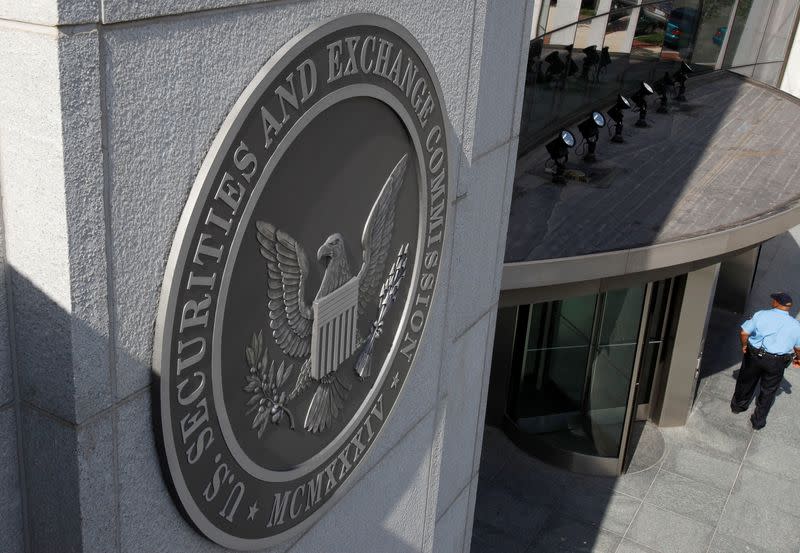US SEC proposes banning volume-based trading discounts for stock brokerages

By Douglas Gillison
(Reuters) -Wall Street's top regulator on Wednesday proposed new regulations it said should level the playing field among broker-dealers operating on U.S. stock exchanges by ending pricing schemes that tend to favor bigger players.
At a public meeting in Washington, a divided five-member U.S. Securities and Exchange Commission voted 3-2 to propose banning stock exchanges from offering lower transaction prices and rebates to brokerages with higher trading volumes, something officials said creates unfair competitive advantages for larger firms.
"Sometimes the large brokers get rebates that are even larger than the fees they pay or actually have a situation where the exchanges are paying the largest brokers for that order flow," said SEC Chair Gary Gensler.
However, the commission's Republican members objected, saying the proposal was a solution in search of a problem.
The number and complexity of pricing tiers that can exist among exchanges, and which leave different brokerages facing sizeable differences in cost, can make price schemes complex and difficult to understand, officials said in advance of the meeting.
Ending such pricing advantages will also help prevent conflicts of interest in which brokerages may route orders for execution to larger firms or in ways that benefit the brokerage but not the client, according to the SEC.
The ban on transaction price discounts and rebates would not apply when brokerages trade for themselves, SEC officials said in advance of the meeting.
In those cases, stock exchanges will have to disclose pricing tiers and the number of exchange members who qualify to the SEC, which will make this available to the public.
Republican Commissioner Hester Peirce, a critic of the SEC's regulatory agenda, said agency staff who drafted the proposal had not shown it was necessary.
"Though replete with concerns about possible future harms, the release fails to mention what, if any, harm has occurred to justify the proposed changes," she said in prepared remarks during the meeting.
"Economies of scale trigger discounts in almost every industry. You buy in bulk and you pay less. Why should similar discounts be unavailable in this industry?"
The proposal is now subject to a period of public comment and may be revised prior to any decision on whether to adopt it.
The American Securities Association, a trade group, said Wednesday it would study the proposal but appeared to share the concerns behind it, adding that the commission had "an obligation to promote competition and transparency."
Ellen Greene, managing director for equity and options market structure at the Securities Industry and Financial Markets Association (SIFMA), said her organization would likewise review the proposal, but asserted the SEC was again proposing broad-based changes "without identifying a market failure or evidence of repeated market harm."
(Reporting by Douglas Gillison; editing by Jonathan Oatis)

 Yahoo Finance
Yahoo Finance 